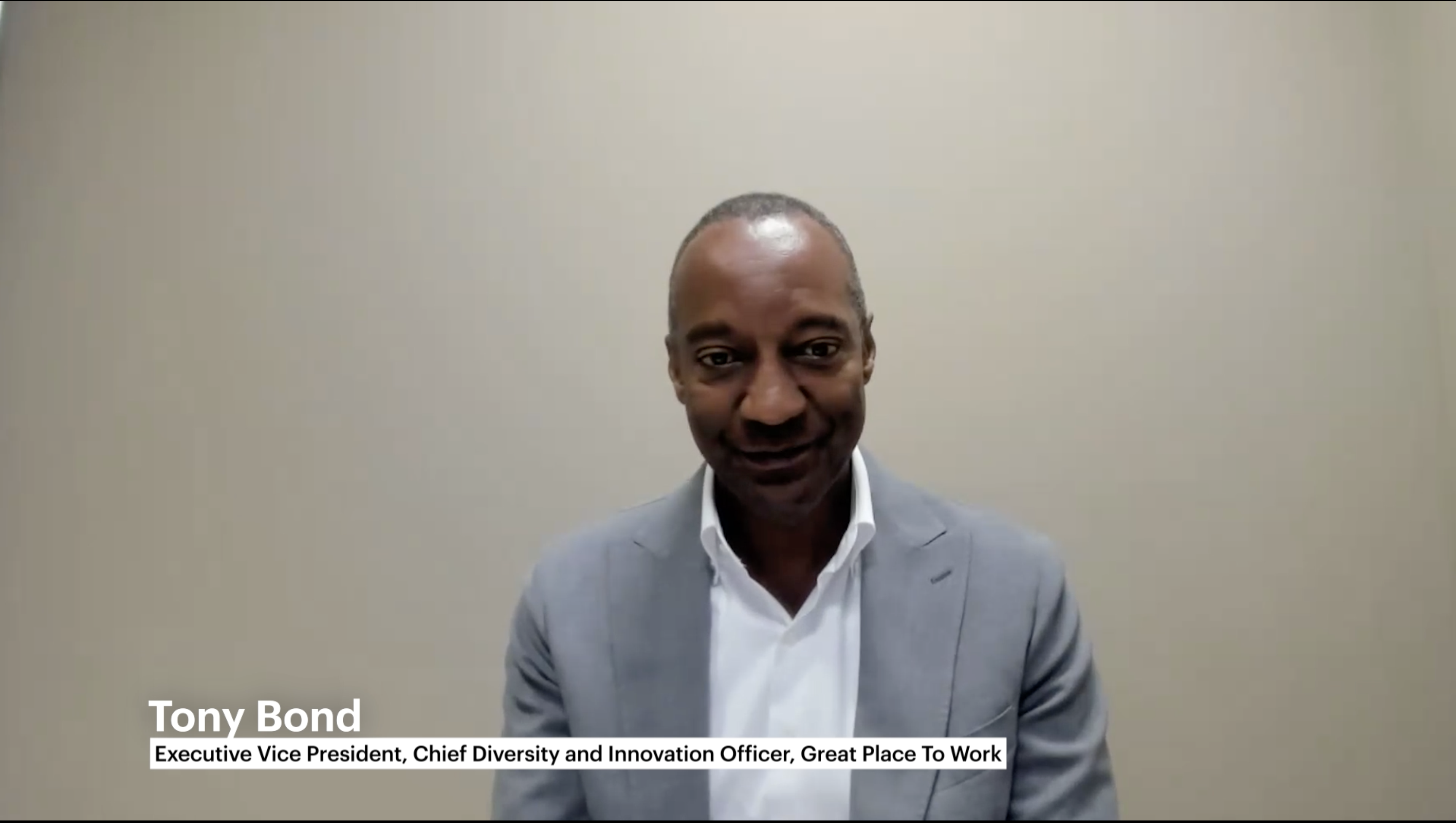Ed Bastian, CEO of Delta, and Julie Sweet, CEO and chair of Accenture, joined Michael C. Bush, CEO of Great Place To Work® for a conversation about leadership with Fortune.
The uncertainty roiling the business community is unsettling employees.
Employee confidence was at its lowest point in nine years in February. That matches record declines in employee trust, and sinking levels of employee well-being in the U.S.
Leaders like Delta CEO Ed Bastian and Accenture CEO Julie Sweet point to policy changes that are dramatically altering the business landscape. Tariffs and changing trade patterns have many dusting off their crisis playbooks.
Even if the tariffs disappear, policy changes out of Washington, D.C., have forced leaders to recalculate.
“Everything could go back tomorrow with the tariffs, but there are implications in geopolitics and how things are going to react,” Sweet says, alluding to threats to the American dollar as a global reserve currency. “That is something that impacts markets, it impacts supply chains, it impacts growth plans.”
Uncertainty has a tangible effect on employees, according to Michael C. Bush, CEO of Great Place To Work. “Fear and uncertainty aren't good for trust,” he shared on a virtual roundtable with Bastian and Sweet, hosted by Fortune to celebrate the 2025 Fortune 100 Best Companies to Work For® List.
Trust is a key ingredient in the employee experience, which Great Place To Work measures to develop the 100 Best list every year. When employees trust their leaders, their colleagues, and their organization, they are more engaged, more innovative and more agile at work — driving business results for their employer.
Companies like Accenture, No. 7 on this year’s list, and Delta Air Lines, No. 15, are using their culture to speak directly to employee fears and offer stability. Sweet has a simple message for her team: We are not helpless.
“We don’t control everything,” she says. “This is a really tough environment, but we have a lot in our hands.”
What you can do to redress employee fears on tariffs
Here’s how Delta and Accenture lean on their strengths to allay employees’ fears and build momentum for the opportunities ahead:
1. Make sure every employee feels heard
Employee listening is a powerful antidote to fear and uncertainty, allowing employees direct access to leaders.
At Delta Air Lines, regular employee listening sessions — called VELVET — allow frontline employees to ask questions directly to top leaders, including Bastian. “We bring hundreds, if not thousands, of our frontline employees from all across the world to attend … and I lead each one of them,” Bastian says.
“The most important people to listen to are your own and to understand what they need to be able to take care of the hundreds of the public that we serve every single day,” he adds.
At great companies, listening programs are always being improved and revisited, even when there isn’t a new crisis on the horizon. “This is not something you do only in reaction,” Sweet says. “If you’re not already doing it, then you do need to get started.”
Both Accenture and Delta use Great Place To Work surveys to learn about their employees’ experience and make informed decisions about how to increase resilience and capacity.
That’s because people are crucial drivers of business success. “Fundamentally, it does come down to your people — their skills, their engagement — to make you successful,” Sweet says.
2. Embrace a growth mindset
Learning and development programs can also foster resilience and combat employee fears.
At Accenture, the team responded to news around new tariffs by bringing in experts and leveraging technology to help its staff get up to speed on a new market reality.
“We invested in their learning, equipping them to quickly be able to have the right conversations, because we have 10,000 [managing directors] … none of whom were an expert in tariffs,” Sweet says.
Employees had access to AI-enabled learning and communities built on Microsoft Viva to connect and learn from colleagues. “All of that is both resilience and investment in people,” Sweet says.
3. Connect people to purpose
Having a clear and connected mission for your organization is another weapon against employee fear. For leaders like Bastian, it helps frame current events within the context of company goals that make sense to every employee.
“Our mission is to make the world a smaller place,” he says of the 100-year-old airline. “It is to unite the world, to bring people together.”
Bastian views the mission as an answer to the question: How can I make the world a better place?
“People need to be together in order to elicit the understanding. [It’s] how we move forward, not just as a country, but as a global society,” he says.
The secret is ‘care’
Why do companies like Accenture and Delta outperform the market? There are lots of differences between aviation and global consulting. One thing they have in common is how they care about their people.
“There’s a premium on care right now,” Bush says. When markets tumble or inflation jumps, employees can face new challenges that impact their ability to perform at a high level. When an employer can offer stability, the company often reaps the benefits.
Companies on the Fortune 100 Best list outperformed the stock market by 3.5 times over a 27-year span. In moments of economic uncertainty, the gap gets even wider. “In crisis, [the 100 Best] actually do better because of what they’re doing,” Bush says.
That’s why companies like Delta make a decision to raise pay by 4%, even as they are reforecasting future performance because of market turmoil and dropping consumer confidence.
“When Ed makes a decision like that, I’m sure the spreadsheet doesn’t necessarily say it’s a winning idea, but they do it anyway,” Bush says. The result becomes a winning idea over time because employees become inspired to do their best work.
“If you want to know the secret weapon, it’s caring for your people,” he says.






